Marise Payne pushes back against Chinese ambassador Cheng Jingye
China hit out at criticism of its human rights record and claimed credit for the budget surplus.
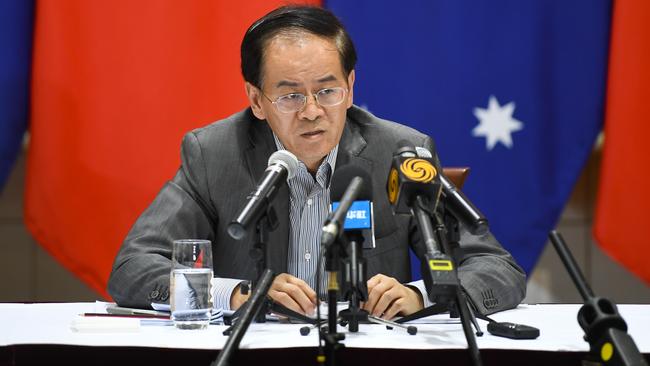
China has reignited tensions with Australia after Beijing hit out against “fake news” criticism of its human rights record and flexed its economic muscle by claiming credit for Scott Morrison’s budget surplus.
Beijing’s top official in Australia, Cheng Jingye, launched a stinging defence of Xi Jinping’s crackdown on Uighur Muslims in Xinjiang and criticised media outlets over their coverage of China relations and the Australian-Chinese community. The Chinese ambassador also revealed Australian citizen Yang Hengjun remained in custody without charge, despite being held since January on suspicion of espionage.
Mr Cheng’s public intervention sparked an immediate response from Foreign Minister Marise Payne, who refused to back down on Australia’s concerns.
“The Australian government has made clear and consistent statements regarding our concerns over the treatment of Australian citizen Dr Yang Hengjun and human rights abuses in Xinjiang. Those statements continue to reflect our position,” Senator Payne’s spokesman said.
In an extraordinary one-hour briefing to selected Australian and Chinese media outlets, Mr Cheng warned the Morrison government to “respect China’s judicial sovereignty” in relation to Beijing’s investigation into Dr Yang. He also claimed credit for the government’s surplus position and jobs figures, declaring trade was the key driver behind Australia’s economic fortunes.
Citing Canberra’s reliance on Beijing to bolster its bottom line, Mr Cheng said trade with China was driving domestic economic growth, with Australia exporting $124bn of goods this year. He also spoke about the benefits of young Chinese studying at Australian universities and continued growth in the Chinese tourist market.
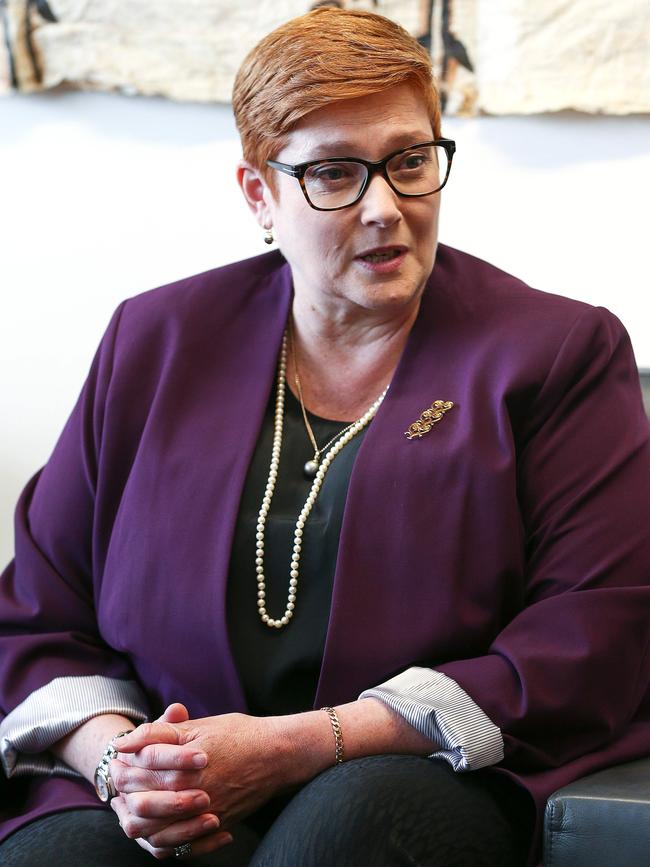
“Australian jobs depend on trade so if we take this theory, Chinese-Australian trade helped create some 640,000 jobs in this country,” Mr Cheng said. “I think The Australian recently reported that 37 per cent of Australian exports went to China over the past 12 months and Australia’s 33 per cent increase in sales to China is largely responsible for the federal budget restoring to surplus ahead of schedule.
“I want to emphasise the importance of pragmatic co-operation and exchange between the two countries and the benefits for both sides … as I said earlier, I would like to see this continue.”
Mr Cheng, who screened a propaganda video defending China’s Xinjiang crackdown on the grounds of “fighting terrorism”, described as “utterly fake news” reports that up to one million people were being held in detention centres.
He denied the existence of the detention camps and said Uighurs were receiving “vocational training”.
“The local government has taken tough measures to crack down on … terrorism or violence,” he said. “At the same time, they have started to take measures to address the fundamental cause of this. That includes to set up vocational training and education centres … aimed at deradicalisation to help people, to bring people affected by the extremist ideology and get rid of those influences.”
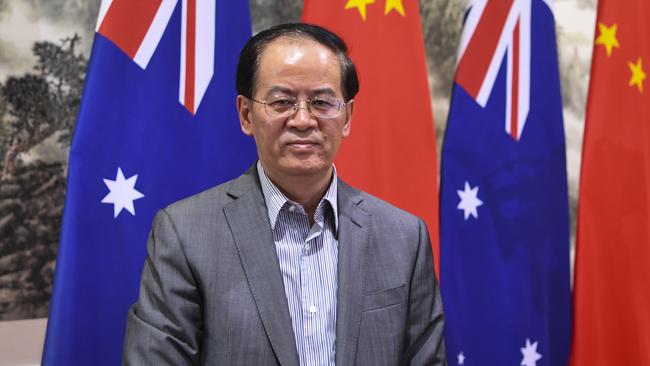
Mr Morrison and Senator Payne have publicly condemned China over reports of mass detention and surveillance of Uighurs and other Muslim minorities.
Mr Cheng’s briefing was part of a global diplomatic strategy reinforcing Beijing’s message on Xinjiang. Its ambassadors to Britain, Poland, Lithuania, Iraq, Nigeria, South Africa, Pakistan, France, Iran and Tajikistan used local media over the past month to criticise coverage of the Uighur crackdown.
Chinese ambassador to Britain Liu Xiaoming used a BBC interview last month to describe leaked Chinese Communist Party documents exposing Xinjiang detention centres as “a made-up story with ulterior motives”.
Mr Cheng, who conceded this year “could have been better” for the Australia-China relationship, left open the door to Mr Morrison being invited to Beijing after three years of tensions over a range of issues including foreign interference and the South China Sea.


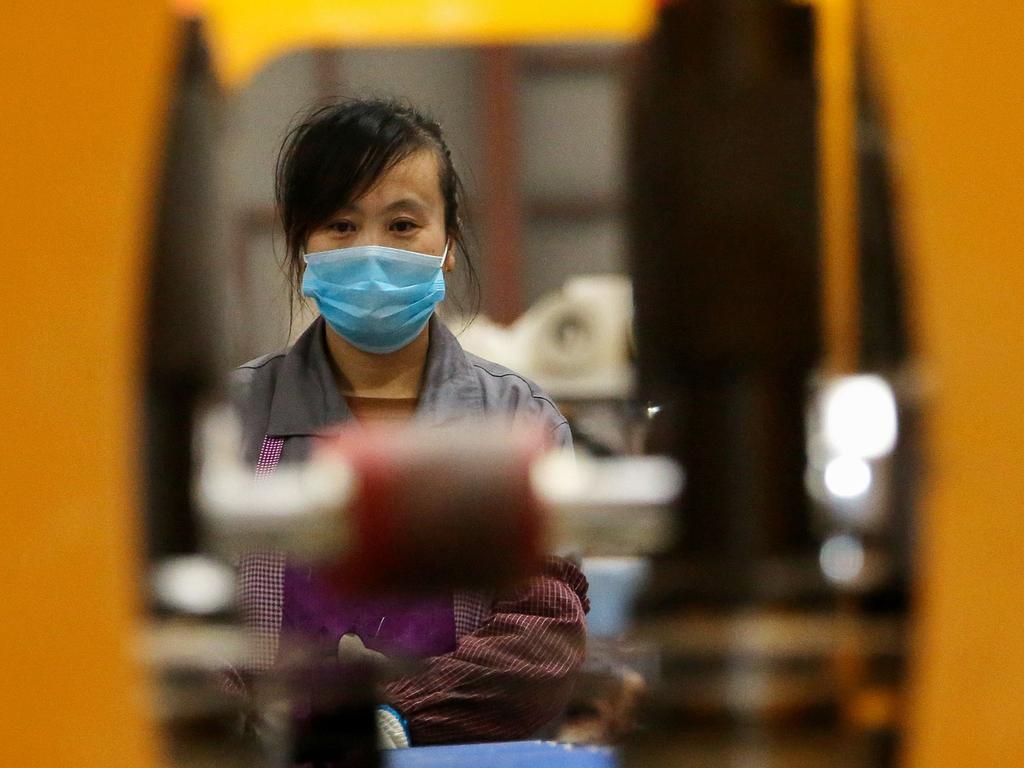
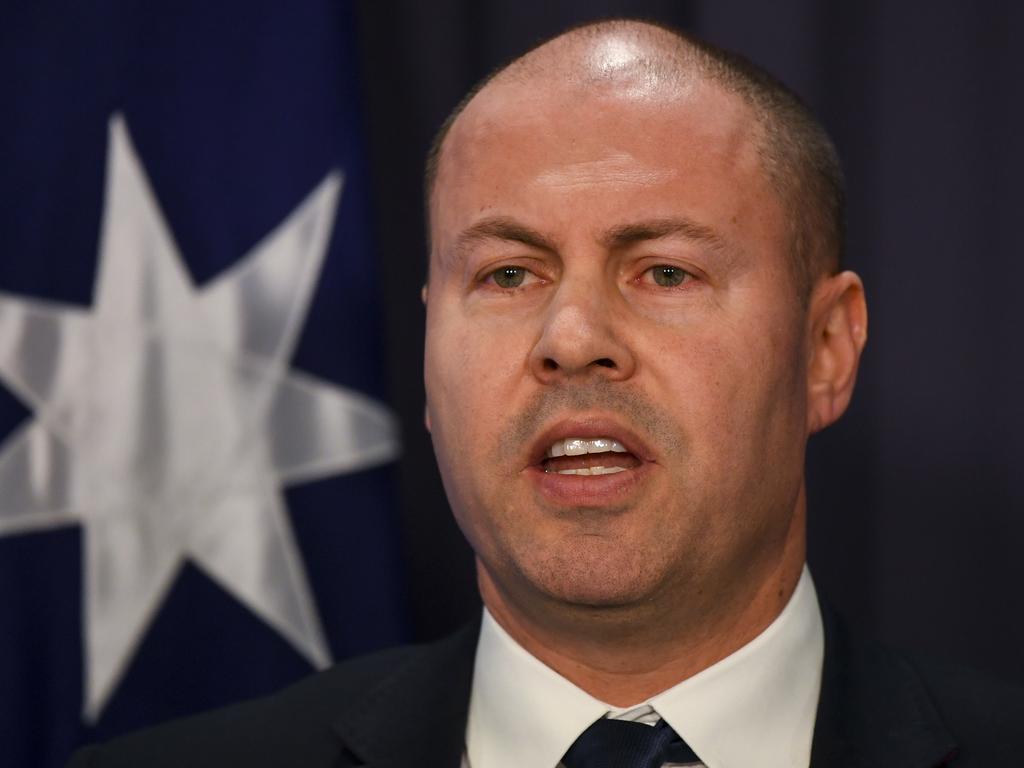
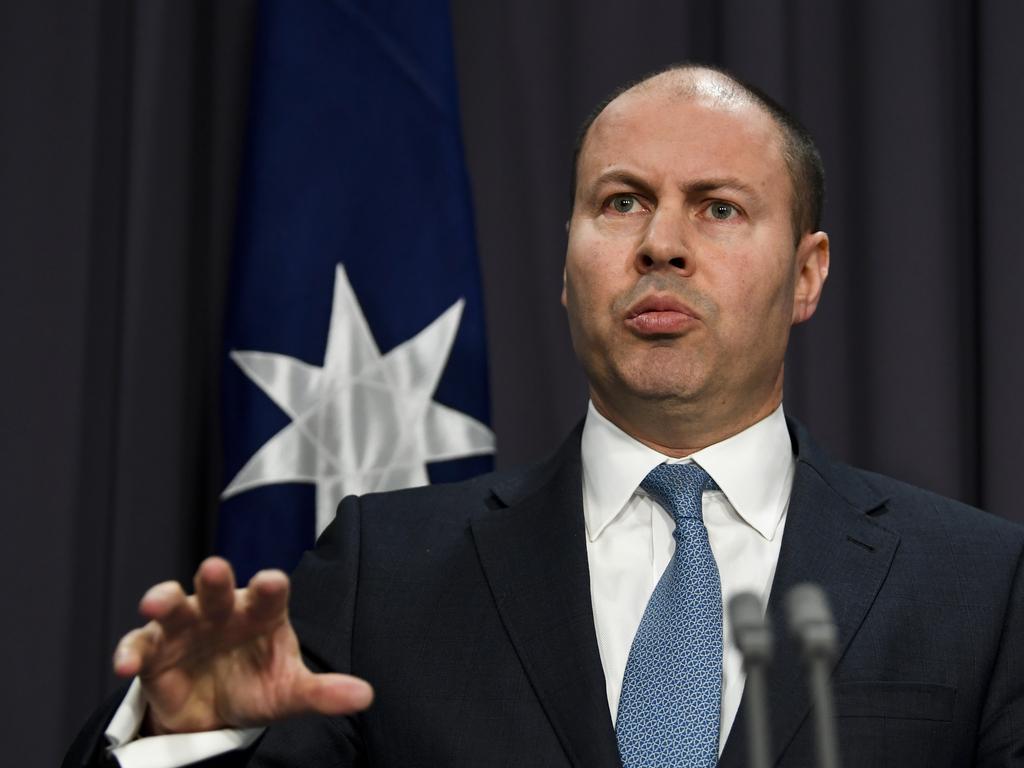


To join the conversation, please log in. Don't have an account? Register
Join the conversation, you are commenting as Logout